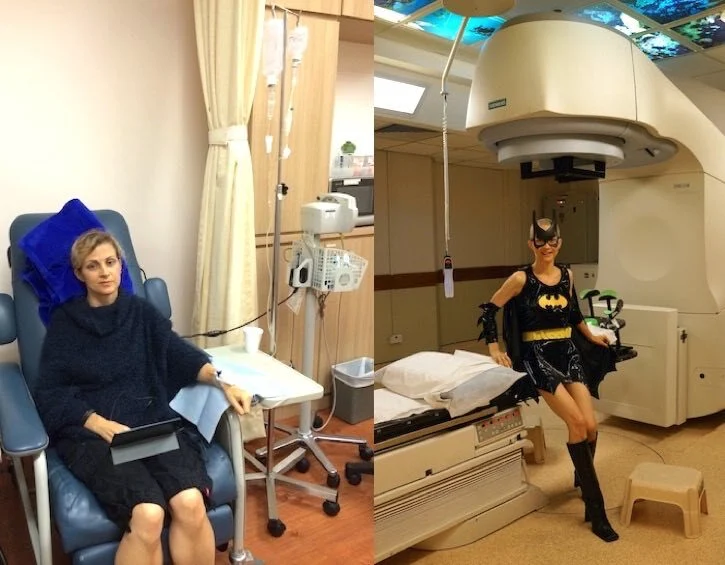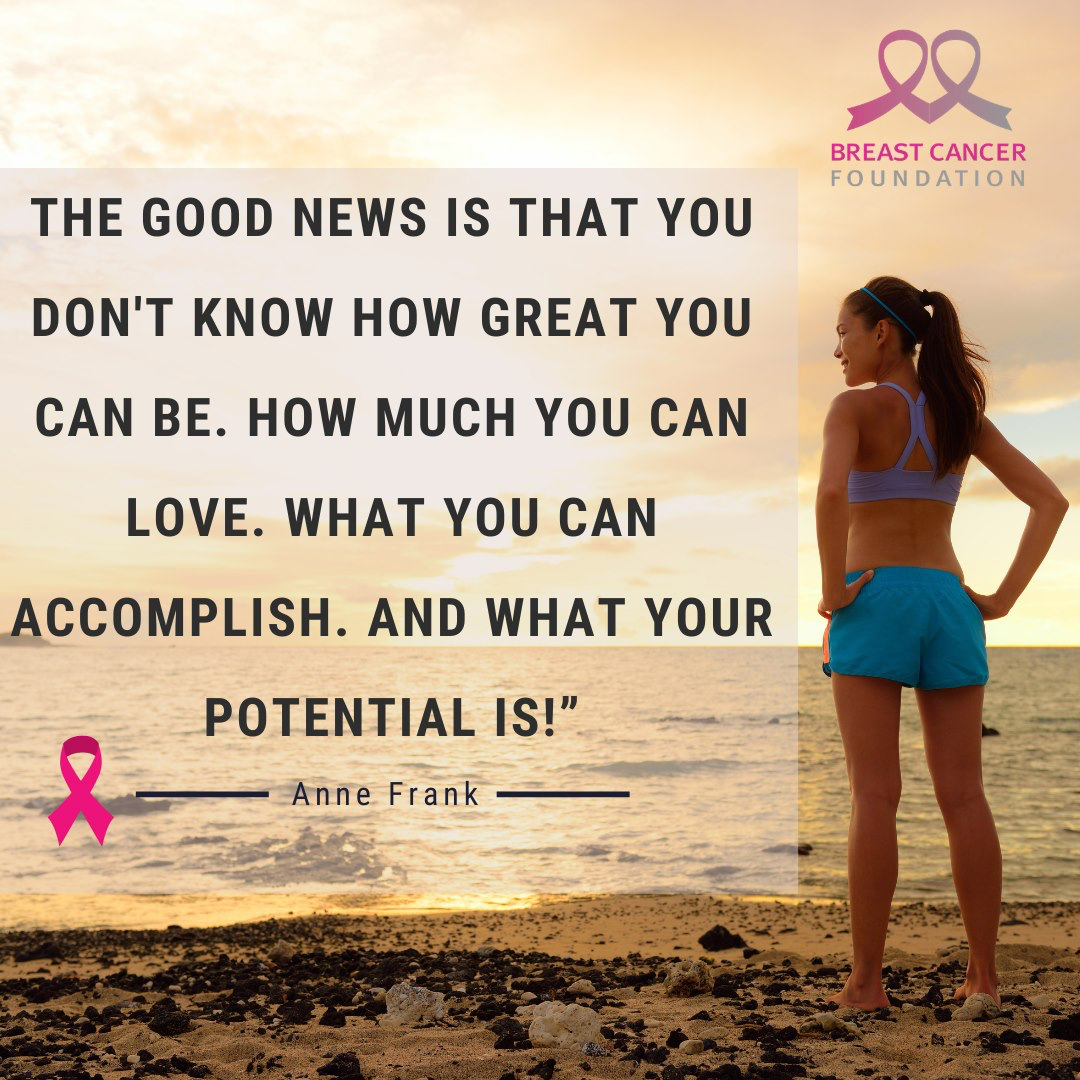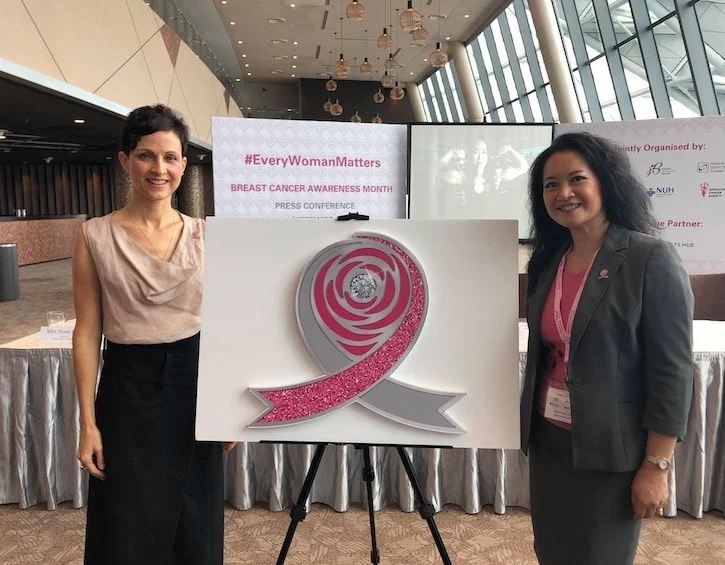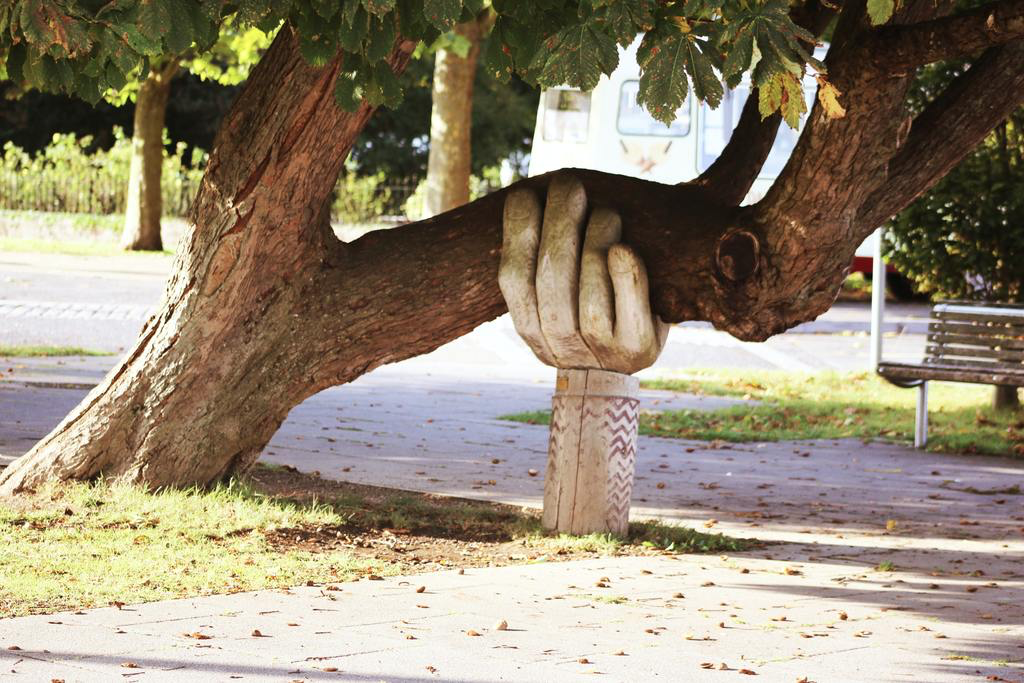Stage 3 breast cancer survivor: mental health support is crucial in recovery
Cara Yap, 14 May 2021
Breast cancer survivor Amy Neary (above) underwent a mastectomy, reconstructive surgeries as well as treatment in the form of chemotherapy, radiation and biotherapy, but found the onerous process more straightforward to negotiate than the emotional strain of recovery.
“While not easy, I found the medical treatment predictable, as I had a plan. I found the emotional recovery tougher. My mental well-being was constantly challenged and I wondered, with every ache and pain if the cancer was back,” shares the 51-year-old, who was first diagnosed with HER2-positive, stage 3 breast cancer in 2014. It was her son’s fourth birthday, and her husband Dan was overseas on a business trip.
Beyond the initial wringer of emotions they first experienced, one of the first things the couple did was share Amy’s diagnosis with their family and close friends, as well as on social media. “The outpouring of support was incredible and unexpected. Many held my hand during my treatments or took my son on play dates when I was not up to getting out of bed,” shared the American, who moved to Singapore with Dan 15 years ago to pursue a job in the tech sector.

For patients such as Amy, being forthcoming and open to help can play a pivotal role in the recovery process. “Patients with higher levels of social support tend to have better outcomes, such as slower cancer progression and higher rates of survival. Besides the perception of having confidants to share problems, having a strong network of support can also help foster a sense of hope and optimism for the future, which is associated with better adjustment and coping with the challenges associated with major diseases,” explains Diana, a counselling psychologist at Annabelle Psychology.
The mental healthcare professional points to stress as having a negative impact on major diseases such as cancer, as it lowers immunity and also increases unhealthy behaviours and habits such as getting less sleep and physical activity. And in Amy’s case, staving off such detrimental stress meant that Dan, who was also her caregiver, had to employ both stoicism and humour.
“While I wasn’t perfect, I tried to be present for the moments that mattered, from holding her hand during chemo treatments, to helping search for wigs to cover up her hair loss. I tried to be the shoulder to cry on when she was feeling down or needed to vent, the hand to hold when she needed strength, and a source of humour (often irreverent) when she needed a good laugh,” he recalls.
Such much-needed levity was evident when Amy showed for a radiotherapy session on Halloween of 2014 dressed in a zany bat girl costume - complete with mask, cape and boots. “It had an amazing effect on us, as well as the nurses, doctors and patients there that day. It brought smiles and laughter, which really helped to lighten the mood for everyone. As they say, laughter is the best medicine,” she asserts.
Cancer rehabilitation - overcoming mental obstacles

(Image credit: Breast Cancer Foundation)
But not all moments of her recovery journey were imbued with as much lightheartedness as the former. “Learning to be comfortable with my ‘new’ body after surgery was initially difficult and frustrating. The recovery time was longer than I would have liked - two years for all the treatments and multiple reconstructive surgeries to be completed,” recounts Amy.
The rehabilitation process also begged a degree of patience on her part, as the typically active mother grappled with physical limitations. “Once you have a cancer diagnosis, it changes everything. You need a new language and mindset, because there is a ‘new normal’ that comes with the diagnosis. Life as I knew it didn’t exist anymore,” she adds.
Such inner conflict it seems, is common, regardless of the stage of a patient’s cancer journey. “Many patients experience a sense of losing control over their health and life upon receiving the diagnosis of major illnesses, which brings about significant changes in their emotions. Some may also experience denial and grief over losses they anticipate (ie. body image, functioning), while others may worry about having their identity defined by the illness, both of which could significantly change the quality of their relationships with significant others,” says Diana.
While Amy admits that acceptance of her new lifestyle and things beyond her control were challenging, she turned the adversity into an opportunity to grow and make profound changes. She made her health, family, friends and community of cancer survivors a priority, relying on them for support. She practised breathing techniques and meditation, as well as drew inspiration from books on healing and thriving as a cancer survivor. The sporty individual was eventually able to resume her yoga, biking, swimming and tennis sessions.
And in a sense, she weathered the strain of recovery together with Dan, who as a caregiver, confronted his own unique scope of challenges. “Caregivers have a thankless job as they are behind the scenes most of the time. Then, they are expected to step up when you need them the most. This is not easy and can be overwhelming at times. Feelings of helplessness can set in,” shares Dan.
His experience reflects that of many other caregivers, who according to Diana, are known to experience changes in their emotions that are comparable to that felt by patients themselves. “Caregivers may also experience changes to their identity and self-perception, much like the patients, which has the potential to elicit feelings of guilt and shame,” she says.
Pay it forward

Thankfully, the Nearys' cohesiveness as a couple translated into resilience. “In order to cope, we stayed present for each other and communicated every step of the way what we were feeling and experiencing - we cried and laughed together. Half the battle is acknowledging and accepting the diagnosis, and doing this together made the journey a whole lot easier,” explains Dan.
He has this piece of advice for caregivers of cancer patients: “Lean into this opportunity to be present at the moments that matter. Accept that you won’t be able to control the disease but that you can control how you respond to it. Being diagnosed with breast cancer is not an automatic death sentence and I am a big believer in the healing power of positive thinking and loving support. I’m not focused on how many days we have on this planet, but more on the quality moments that we share together as a family,” he says.
Today, Amy - who is in complete remission from cancer - is an active member of Breast Cancer Foundation (BCF), where she helps support other breast cancer patients and drive awareness of the disease. Both her and Dan concur that the illness has strengthened their relationship. In retrospect, their support system was indispensable to her holistic recovery.
“There are a lot of emotions that come with a cancer diagnosis – anger, sadness, frustration, deep hurt and resentment. On my journey, it was only through the support of friends, family and even complete strangers at BCF that I was able to get through the toughest parts. They helped me get to where I am today – stronger and healthier both physically and mentally. This is why I feel it’s so important to share my journey with others," she concludes.
Breast cancer rehabilitative care webinar
When: 5 June, Saturday (11am SGT)
Where: Zoom/FB Live Total
Duration: 1 hour 15 minutes
The journey after breast cancer surgery and treatment can be challenging. Tune in to our upcoming webinar, jointly organised by Oncoshot and BCF, to learn how to cope from experts from Singapore General Hospital. REGISTER HERE.
Tips for caregivers of cancer patients

Diana, a counselling psychologist at Annabelle Psychology, shares her advice on how to offer support while ensuring your own well-being.
Manage personal expectations by focusing on the support you can provide within reason, and understand the limits of personal control and capacity. Consider involving other people and delegating responsibilities, as well as available support services (ie. community organisations, home care services). Remind yourself that seeking help or delegating responsibilities does not mean that you are incompetent. Rather, you are seeking to focus on your strengths and areas of competence.
Keep up with health and well-being needs by maintaining healthy lifestyle and behaviours. It may be helpful to maintain a structure or having a routine to help to get sufficient rest, exercise regularly, eat nutritiously, and practice mindfulness. Mindfulness involves observing what is experienced without judgement, which allows for openness and acceptance in the context of mind-body connection. Studies have found mindfulness to be effective in reducing stress, anxiety, depression, fatigue and sleep problems in patients undergoing cancer treatment.
Set personal goals to retain a sense of identity and personal competence on top of being a caregiver, such as personal pursuits, hobbies, self-care routines, or other activities that are personally meaningful.
Acknowledge the stress and challenges that are present, as well as the difficult emotions that come with caregiving. It may also be helpful to journal the experience, talk to a loved one, or join a support group to connect with others and make meaning of your experiences.
Encourage patients to talk about their experiences and concerns, as avoidant coping styles (eg. denial, repression) are associated with poorer disease progression and survival rates. This allows patients to not only express how they feel, but also to accept their feelings, however unpleasant or undesired. Besides, they could feel included and accepted by their loved ones despite their diagnosis, which helps instil a sense of optimism. Consider reading up on the illness, or talking to someone about it, before approaching the patient.
Know someone battling cancer? Click here to find out how clinical trials can help expand their treatment options and potentially improve their chances of survival at every stage of the recovery journey.